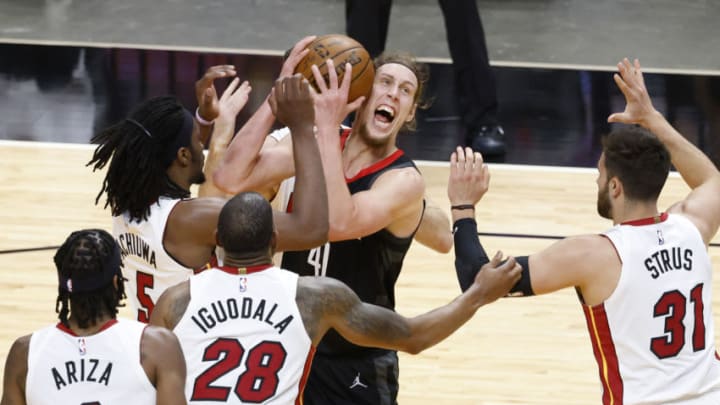
Former Miami Heat forward, Kelly Olynyk, is putting up bigger numbers in Houston and it’s not that hard to understand why.
They do seem to be deploying him a bit better in Houston than he was in Miami. They have him shoot less threes, for which he makes the same 1.8 per contest for them as he did for the Heat.
That, ultimately, means a higher percentage. They also have him taking four more two-pointers per contest, for which he is making three more than he made in Miami.
That’s probably more a personnel thing than anything else. Meaning, because of how Bam and Jimmy had to be deployed to maximize their ability, those spaces that Olynyk are taking advantage of in Houston, weren’t afforded to him in Miami.
With all of this intel and knowledge though, it begs of a question. Did the Miami Heat move the wrong guy?
That’s not an easy answer. For starters, if they were going to make a move, Olynyk made sense because he had the type of contract that could be tinkered with, as far as trades go.
His salary isn’t crazy but it’s big enough to be able to make some things happen, while it also expires following the year for the team that took it on. This means that if they deemed him unworthy of coming back next season, they wouldn’t be contractually obligated to him or to pay him to leave.
Secondly, keeping him and solely based on the winning percentages with and without him according to the win/loss figures highlighted earlier, didn’t make that much of a difference from a raw figures perspective. There is one thing to think about though.
